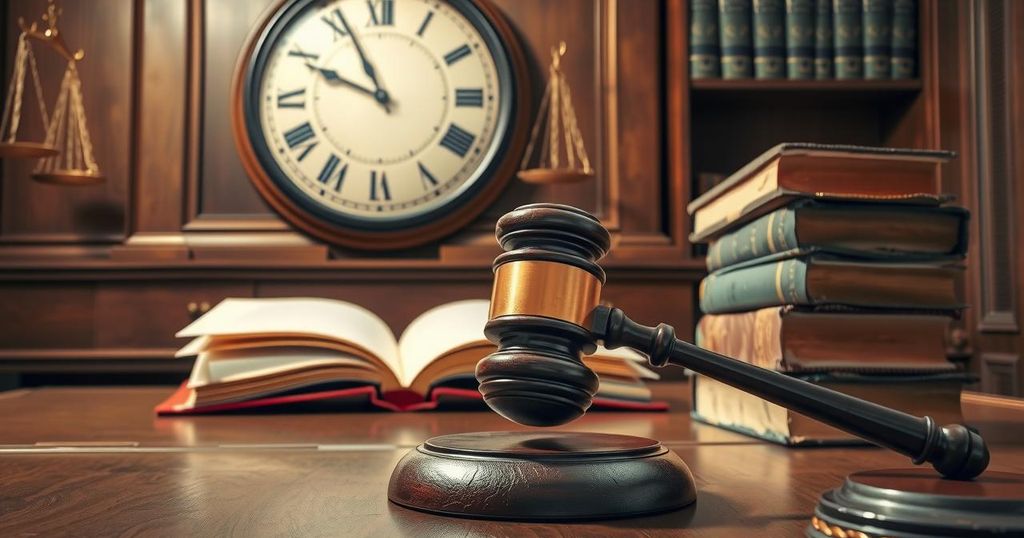Dr. Jallah Barbu announced the upcoming completion of a bill for war and economic crimes courts in Liberia, promoting public pressure on lawmakers for its passage. Advocates at a memorial event stressed the importance of accountability and reparations for past atrocities. Despite government pledges for reparations and memorial sites, significant progress remains lacking as citizens continue to seek justice.
In Liberia, Dr. Jallah Barbu, the executive director of the Office of War and Economic Crimes Courts, announced that a bill for the establishment of war and economic crimes courts will be finalized imminently. This initiative is part of a broader effort for transitional justice in the nation. A technical committee, composed of local experts in transitional justice, is currently revising a previous bill proposed by the Liberian National Bar Association, which remains pending legislative approval since its submission in 2021.
Dr. Barbu expressed his commitment to drafting a comprehensive bill that outlines the court’s framework, including its model, location, staffing, and security protocols. He emphasized the necessity for public engagement, urging citizens to exert pressure on their lawmakers to pass this legislation. He reiterated that the initial indictments could occur as early as 2027, stating the importance of holding accountable those who committed atrocities during Liberia’s tumultuous past.
The call for accountability resonated at a memorial event dedicated to victims of massacres across Liberia. Legal expert Cllr. Tiawan Gongloe advocated for establishing rule of law to ensure no crimes remain unpunished, while stressing the need for public empathy and integrity. He also voiced concerns about the continuing appointment of Lewis Brown as Liberia’s UN Ambassador, suggesting it undermines the government’s commitment to justice given Brown’s alleged past affiliations with war crimes.
During the memorial, survivors and advocates reiterated the pressing need for justice and reparations. They emphasized that genuine reconciliation requires addressing historical injustices. Various speakers highlighted Liberia’s failure to hold accountable any perpetrators of past atrocities, despite some verdicts in foreign courts.
Human rights advocate Mr. Adama Dempster called for reparations and comprehensive TRC report implementation for affected individuals and communities. Following a government pledge to establish a trust fund for reparations, advocates remain skeptical as no significant progress has been made. President Boakai’s creation of a committee to rebury former leaders Doe and Tolbert was also met with caution, reflecting the need for established courts prior to executing such endeavors.
This collaboration with New Narratives, funded by the Swedish Embassy in Liberia, aims to shed light on the ongoing struggles for justice in Liberia’s post-conflict society.
In summary, Liberia’s pursuit of accountability for past war and economic crimes continues to evolve, with Dr. Jallah Barbu emphasizing the imminent finalization of crucial legislation. Public pressure on lawmakers is vital to enact this bill, which aims to establish courts dedicated to justice. Advocates and survivors unite in urging the government to fulfill promises of reparations and memorialization in order to achieve true reconciliation and healing for the nation.
Original Source: frontpageafricaonline.com




